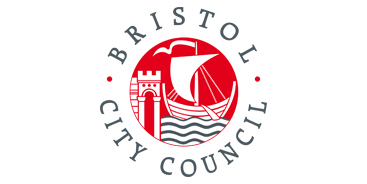The conversations held in the morning during IBT are hard to get up for when you’ve been watching work until just around midnight, and staying awake even later to talk about it. But I make sure I’m there, because they offer a useful lens through which to view the day. (They also provide excellent free croissants: bonus.) Admittedly, that lens isn’t direct – but then, live art is good for that, encouraging you to navigate the oblique, seeking connection between things seemingly unrelated.
Thursday’s Morning Assembly focused on questions of leadership, and in particular how those accustomed to lead might step back so others can move forward. Camille Barton, a Bristol-based producer and member of the Ujima Arts Collective, acknowledged that this stepping back can be difficult: inherited privilege is a comfortable thing, especially when it’s carried unaware. Think of it as a different kind of leadership, she encouraged: leading yourself, and through that those immediately around you, to notice the ways in which you are complicit in creating systems of inequality, and actively challenging that.
Barton’s provocation was one of many things I thought about when watching Out, Rachael Young’s collaboration with Dwayne Antony, which I’ll be writing about further for Exeunt. In the show’s long and absorbing final section, the pair lean over a tub of oranges, patiently peeling and eating them. They are identically dressed, in big black pants and soft felt hats; they sit on oil cans, legs spread wide, focused on their task. What I saw in their stance was an entire older generation, whether Caribbean or Middle Eastern or Mediterranean, a generation raised with strict ideas not only about race but gender and sexuality. Young and Antony’s bodies held a tenderness for these grandparents, parents, aunts and uncles, even siblings – but there was also, embedded in their simple movements, a critique. This is a generation whose ideas and ideals need to be pared away, like the peel from the oranges: discarded, left for dead.
But that older generation also has a wisdom, which can be sucked of its juice and put to fruitful use. Back at the Morning Assembly, Liz Moreton, senior producer at Battersea Arts Centre in London, talked about the Agency, an initiative that BAC has been developing based on a project carried out in the favelas of Brazil. The Agency begins by inviting young people – not theatre-goers: kids encountered in chip shops, on street corners – to describe an idea or passion they have that might improve their community. BAC then supports those young people to develop their ideas, paying them to spend time with each other, and an array of mentors, learning how to give and take feedback, and advocate for their cause.
Moreton’s provocation was electric. She invited everyone in the room – a room mostly comprising artists, producers, artistic directors – to be generous leaders: not simply to ask young people to participate in your activities, to perform bit parts and follow your lead, because this limits this new generation only to re-creating another’s vision. Instead, find out what their visions and ideas are, share your networks and resources, and try participating in their world: because that’s how you unlock the new leadership that can bring about genuine change.
Again, Moreton’s words returned to me watching The Record, a collaboration between New York company 600 HIGHWAYMEN and 45 Bristolians of all ages, skin colours, body sizes. I deliberately didn’t read about the work in advance, because wherever possible I like to keep my head clear of preconceptions (another useful tool a dedication to art has given me for life). It means I didn’t know that the performers on stage were meeting for the first time, having rehearsed individually. Would it have made any difference to me, enhanced my appreciation of the tiny moments of contact, when hands reached out and touched other hands, or bodies fell back into another’s arms? I don’t think so: I already have a warm reflex response to trust exercises, and absolutely the most moving moment for me was when an older man stood close to the front of the stage, his hand on another human’s shoulder, his lip clearly trembling and eyes misting at the personal enormity of what he was part of. And I don’t think it would have stopped me questioning whether there was anything about this performance that was distinctively Bristolian. Did it matter that the people involved came from Knowle West and not Cheltenham, or Cardiff, or Swindon, or any of the other places within reach by train? I’d argue not – because nothing happened on stage to make the people distinctive.
Another speaker at the Morning Assembly, Melanie Eusebe (executive producer of the Women of the World festival), discussed the vital importance of intersectionality: the tricky but useful word coined by black feminist thinkers in the US to describe the many parts of people’s identities that affect their movements through society and culture. Specifically she argued against the flattening of people that happens when multiplicity of identity is overlooked. The Record enacts this very flattening, by presenting people as representative of a generalised humanity. The differences in age, skin colour, body shape, might be visible, but what that builds is a bland vision of “diversity”. What it doesn’t create is a sense of inclusion.
I realise that sounds unfair: here are 45 Bristolians invited to stand on the stage of Bristol Old Vic, a venue many of them might long have felt wasn’t for them. But even as we share eye contact – and I’m not denying how powerful that can be – we hear nothing of who they actually are: their individual dreams, ideas, visions. 600 HIGHWAYMEN have asked these Bristolians to re-create a vision, one carefully scored and graphed: to follow a precise lead. And through the lens of the Morning Assembly, that felt deeply problematic.
OUT, Rachael Young © Paul Blakemore





